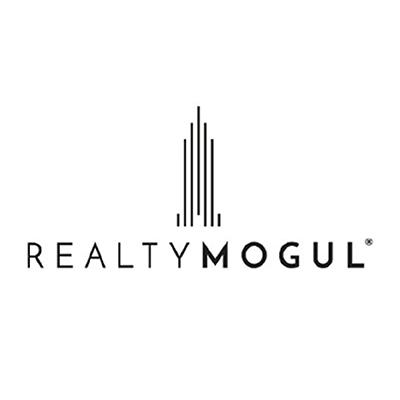Invest in commercial real estate projects
Invest in individual commercial real estate properties or REITs
Investments
$25,000
Minimum investment amounts on CrowdStreet start at $25,000, with the exact threshold varying by individual project.
Investments
$25,000
The minimum investment on RealtyMogul typically ranges from $25,000 to $35,000, depending on the specific investment offering.
Moderate Risk
3/5
Investing via CrowdStreet entails typical real estate risks such as market fluctuations and property-specific issues, with no guarantee of returns and potential for capital loss.
Moderate Risk
3/5
Investing through RealtyMogul entails risks like market volatility, economic shifts, and property-specific issues. Investments are illiquid and there's potential for loss of capital.
Minimum Liquidity
1/5
CrowdStreet investments are generally illiquid, with capital committed for several years until a potential liquidity event, such as a property sale or refinancing, without a secondary market for early exit.
Minimum Liquidity
1/5
Investments through RealtyMogul are illiquid, as they are private real estate transactions not traded on public exchanges, and therefore cannot be easily sold or traded. Investors should have a long-term commitment and not expect to resell quickly.
Receive new reviews from Fintorial
High Return
17.9 %
CrowdStreet has a historical 17.9% Realized IRR and a typical 3.1-year hold period for investments, with returns varying based on equity shares, debt interest, or hybrid terms, and property sales.
High Return
15.0 %
Investors on RealtyMogul can expect an overall realized IRR of 20.8% and an overall target IRR of 15.0%. Cash-on-cash returns, IRR, and equity multiples are key metrics provided for each deal.
Long-term Investment
3-10 years
CrowdStreet investments typically have a hold period of 3.1 years on average, with some ranging from 3-5 years and others up to 10 years, reflecting a long-term investment horizon.
Long-term Investment
3-10 years
Investments on RealtyMogul generally have a hold period ranging from 3 to 10 years, depending on the individual property's business plan and associated financing.
Who can invest
United States
Individuals must be accredited U.S. residents with valid identification to invest on CrowdStreet, while entities need U.S. accreditation, taxation, and verification, subject to CrowdStreet's approval.
Who can invest
United States
RealtyMogul allows both accredited and non-accredited investors to use its platform. However, only accredited investors can participate in private placement offerings, while both categories of investors may invest in RealtyMogul's managed REITs, subject to certain legal limitations.
Moderate Volatility
3/5
Assets on CrowdStreet may experience volatility due to economic shifts, interest rate changes, and local market trends, affecting property values and investment returns.
Moderate Volatility
3/5
Commercial real estate assets on RealtyMogul can be volatile, with values affected by economic shifts, interest rates, and market trends. This can lead to fluctuations in investment value and potential financial losses.
Regulation and audits
SEC Regulated
CrowdStreet's offerings are regulated by the SEC and subject to regular audits for compliance, ensuring adherence to legal standards for securities and real estate investments. However, details on specific audits and regulations are not publicly disclosed.
Regulation and audits
SEC Regulated
RealtyMogul is regulated by the SEC and must adhere to strict disclosure and filing requirements. The platform's offerings are subject to regular audits to ensure compliance with financial reporting and regulatory standards.
Insurance
Yes
CrowdStreet's properties are typically insured against physical damage, but this does not cover market risks or guarantee full property value protection. Investors should note that insurance mitigates, but doesn't eliminate, all investment risks.
Insurance
Yes
RealtyMogul's properties are insured against physical damage and loss, but insurance might not cover all risks, such as market volatility or economic downturns. Insurance is a risk mitigation tool, not a guarantee against all potential losses.
Payouts
Dividends
CrowdStreet investors may receive distributions, typically on a quarterly basis, based on the cash flow and profitability of their investments, but these are not guaranteed and depend on the specifics of each project.
Payouts
Dividends
Investors may receive quarterly distributions, which are not guaranteed in timing or amount and depend on the performance of the investment and terms set by the managing real estate company.
Withdrawals
Investors on CrowdStreet typically receive their money back after a liquidity event like a property sale, based on the timeline of the specific project's business plan. Real estate investments are illiquid, so funds cannot be withdrawn on demand.
Withdrawals
Investors on RealtyMogul can expect to receive their money back either through property sales or distributions during the investment's hold period, as outlined in the offering documents. The investments are illiquid, so exact timing of returns is not guaranteed.
Extra Fees
Yes
CrowdStreet investments may include sponsor-determined fees such as acquisition, asset management, and property management fees, along with performance-based carried interest.
Extra Fees
Yes
Investors indirectly pay fees for each investment, which vary by the offering and cover administrative, legal, and management costs. Fee details are disclosed for each opportunity on the platform.
Taxes
Tax Form
CrowdStreet issues Form K-1 or other relevant tax documents to investors for annual tax reporting, with the advice to consult a tax advisor for proper tax treatment of investments.
Taxes
Tax Form
RealtyMogul issues Schedule K-1 forms for individual deals and Form 1099s for REIT investments, made accessible via the investor's dashboard. Dividends from REITs historically have not been qualified for preferential tax rates.

